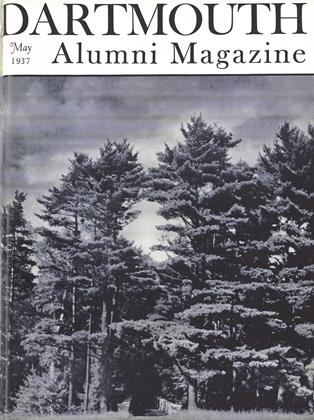By Professor Malcolm Keir, Ronald Press, p. 539- $3-50.
This is the history of a generation of American workingmen. Professor Keir's purpose is to explain, for the period of 1896-1929, what labor wanted, why it wanted it, what methods it used in trying to get it, what obstacles it encountered, and what success it attained. As he points out, no business executive, labor leader, or student can afford not to know the story of labor during this period, because the record of what workingmen have wanted in the past generation is the guide to what they hope to achieve. His account of this record is well-balanced, «clearly written, and rigidly confined to the analysis of factual material. There is a competent study of wages, hours, and working conditions. The successes, failures, and methods of the various types of unions are outlined. In addition to a general discussion of strikes, there are two chapters describing in considerable detail some of the more important strikes of the period. Other chapters deal with outstanding court trials and judicial decisions, labor legislation, labor's attitude towards political action, and radical farm movements. There is an excellent account of the labor tactics of employers' associations, featuring the National Manufacturers' Association and the League for Industrial Rights. A particularly valuable feature of this book is the inclusion of a thorough study of Southern and Negro labor. This study reveals not only the low standards which prevail for Southern and Negro workers, but also the disastrous effects of these low standards on labor conditions throughout the United States.
Professors are notoriously impractical and idealistic. At least that is the verdict of an overwhelming majority of practically minded editorial writers, lawyers, and business executives. Professor Keir's impracticality is obvious. He apparently thinks that it is useful to know something about actual labor conditions, and to try to understand why workingmen want more wages, more leisure, and more security. Anyone who reads or listens these days must realize that labor unrest is caused by radical agitators, racketeers, and political demagogues, and that labor troubles can be solved only by deporting aliens, imprisoning radicals, and chanting loudly the legal words and phrases of the fantastic constitutional mythology invented by the American Bar and popularized by the American Press. The real issue is "Anarchy versus Law and Order." How many thousands of times in history have men tried to escape the realities of life by casting out devils and reciting creeds? No doubt those who have questioned these methods have always been denounced as impractical. Professor Keir will be in good company.
 View Full Issue
View Full Issue
More From This Issue
-
 Article
ArticleThe Big Red Rolfe '31
May 1937 By RUEL N. COLBY '27 -
 Class Notes
Class NotesClass of 1928
May 1937 By LeRoy C. Milliken -
 Article
ArticleGradus Ad Parnassum
May 1937 -
 Article
ArticleThe Undergraduate Chair
May 1937 By BEN AMES WILLIAMS JR. '38 -
 Article
ArticleDeath Ends Active Dartmouth Life
May 1937 By NATHANIEL G. BURLEIGH '11 -
 Class Notes
Class NotesClass of 1914
May 1937 By Edward Leech
Books
-
 Books
BooksThe Moosilauke Ravine Lodge?
June 1962 -
 Books
BooksWINGS IN THE NIGHT
November 1938 By Bill Cunningham '19 -
 Books
BooksFaculty Books
January 1953 By JUDSON S. LYON '40 -
 Books
BooksHAPPY BIRTHDAY TO YOU!
November 1959 By MAUDE D. FRENCH -
 Books
BooksPROFITS ON HORSES.
June 1937 By Paul S. Allen '26 -
 Books
BooksTHE BATTLE AGAINST ISOLATION.
January 1945 By Robert K. Carr '29


